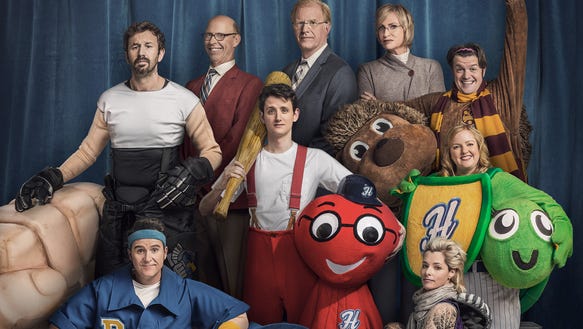Netflix’s “The Babysitter” is a horror-tinged action-comedy
with a surprising amount of charisma and charm. Surprising because it's
directed by McG, best known for hacky schlock like “This Means War,”
“Terminator Salvation” and the “Charlies Angels” movies, Here he scales down
his budget and the broad scope of his desired audience, and in doing so manages
to helm something that feels specific and personal, while also retaining enough
visceral hijinks and well-intended snark to keep things entertaining.
The film centers on the relationship between a nerdy twelve
year old named Cole (Judah Lewis) and his babysitter Bee (Samara Weaving). Cole
is getting old enough to know that he’s probably too old for a babysitter, but
Bee is everything a bullied brain needs in middle-school; she’s smart, she
listens, she gives great advice and she’s smoking-hot. The only downside is she
also happens to be the leader of a teenage devil-worshipers cult. One night,
while Cole’s parents are away, he stays up late to see what Bee and her friends
are up to, only to disrupt a murderous death ceremony, which kicks off a
night-long game of cat and mouse between our worry-wort protagonist and this
group of sinister high schoolers.
This movie mostly works because of the well-established dynamic
between Lewis and Weaving. We have to fall in love with Bee just as Cole does,
so that when the story reveals her for what she is, we feel the same kind of
betrayal. To the director’s credit, he does the proper leg-work with these
characters so that the drama is informed and the action stakes are energized.
Samara Weaving gives what would normally be a star-making performance as
Bee--she’s confident, funny and powerfully sexy, without ever leaning into
vacuous objectification. The versatility she displays with this wildly
audacious role is better than any acting reel one could hope to cobble
together. Judah Lewis is also good at portraying believable innocents in a
film that revels in poppy ultra-violence and subversive fun. It’s
for this reason that the other teens, played by Bella Thorne, Hanna Mae Lee,
Robbie Amell and Andrew Bachelor feel all the more underwritten in comparison.
While Weaving and Lewis are fully realized and complicated
from the page to their performances, these other roles are far more comfortable
existing as basic teen horror archetypes, often spouting sophomoric, unfunny
dialogue. But despite the quality imbalance between all the characterizations,
“The Babysitter” still knows how to build small-scale action set-pieces with
creative kills and effective moments of splattering slapstick.
Besides working well as a violent dark comedy, Brian
Duffield’s screenplay also remembers to root everything within the context of
an effective coming-of-age arc. As a result, this left-of-center project is
without a doubt the most original and heartfelt film to come out of McG’s
spotty catalog, and that’s saying something for a picture littered with satanic
blood rituals, hangings and indoor car crashes.
Grade: B-
Grade: B-
Originally Published in the Idaho State Journal/Oct-2017
Listen to this week's episode of Jabber and the Drone to hear more conversation about " The Babysitter."





